Key Information
Enrol Now
This course may run again in the future. To register your interest please contact us.
Alternatively you can download and email using our Registration Form
Course Information
- How the nervous system works
- The neuro exam in dogs
- Problem solving in veterinary neurology – formulating a diagnostic plan and determining what tests are useful and when
- Canine epilepsy – rational approach to diagnosis and therapy
- Tremor syndromes and movement disorders – where to start
- Vestibular syndrome – how to differentiate peripheral from central and why that’s important
- Differentiating neurogenic from orthopaedic lameness
- Chronic spinal disease in dog
- Assessment and management of head trauma, and assessment and management of the ‘acute spine’
- Treatment of acute seizures and status epilepticus
- Neuromuscular disease – diagnostic and therapeutic update
- Canine neuro-oncology – therapeutic options
There is often a misconception that neurological cases can only be diagnosed and managed in specialist centres. Whilst there are undoubtedly some very useful and expensive neurological tools available to specialists, the core of neurological case assessment remains a thorough history and a good neurological examination. During this two day course at the RVC’s Hawkshead campus we will review the important fundamentals of assessing a neurological case using tools available to all veterinarians – their eyes, ears, fingers and brain! The course will be lecture based but involve plenty of interaction and case discussions. Participants may attend one or both days according to their interests and budget.
You can attend both days or day one or day two only - six hours of CPD can be gained each day.
Key areas
Day 1
- How the nervous system works
- The neuro exam in dogs
- Problem solving in veterinary neurology – formulating a diagnostic plan and determining what tests are useful and when
- Canine epilepsy – rational approach to diagnosis and therapy
- Tremor syndromes and movement disorders – where to start
- Vestibular syndrome – how to differentiate peripheral from central and why that’s important
Day 2
- Differentiating neurogenic from orthopaedic lameness
- Chronic spinal disease in dog
- Assessment and management of head trauma, and assessment and management of the ‘acute spine’
- Treatment of acute seizures and status epilepticus
- Neuromuscular disease – diagnostic and therapeutic update
- Canine neuro-oncology – therapeutic options
This course was originally due to be run in January 2014.
Steven De Decker, DVM PhD MVetMed DipECVN FHEA MRCVS
Professor in Veterinary Neurology and Neurosurgery
The Royal Veterinary College
Holger Volk, DVM DipECVN PhD FHEA MRCVS
Professor for Small Animal Diseases, University of Veterinary Medicine Hannover
Honorary Professor of Veterinary Neurology and Neurosurgery, The Royal Veterinary College

